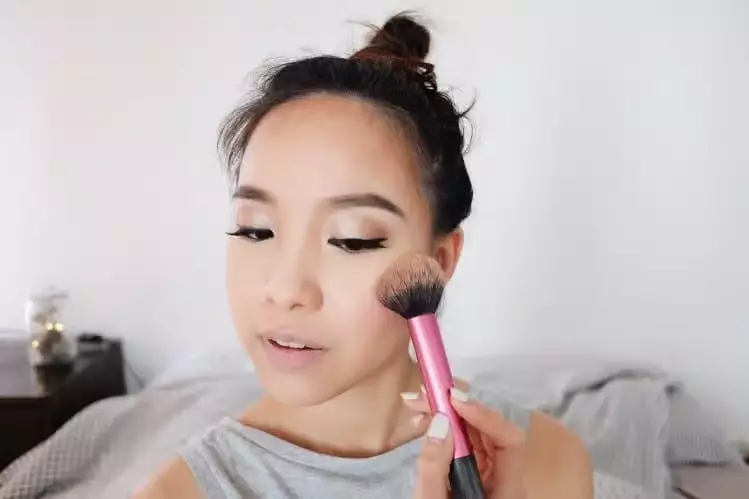In the journey toward motherhood, the significance of wellness cannot be overstated. Expecting mothers have a profound responsibility to ensure that they protect not only their health but also the future health of their child. With a plethora of chemicals and toxins lurking in everyday products, making informed choices has never been more critical. This article will explore vital chemicals to meticulously avoid when planning for or during pregnancy, and suggest safer alternatives to embrace a healthier lifestyle.
Understanding Dangerous Chemicals: The Hidden Threats
A plethora of common household products, from skincare items to cleaning supplies, contain hazardous chemicals that can adversely impact fertility and fetal health. Dr. Aaliya Yaqub, an expert in holistic wellness, emphasizes the importance of scrutinizing labels on cosmetics and personal care items. One of the top offenders is parabens, which are synthetic preservatives often found in beauty products. Compounds such as methylparaben and propylparaben mimic estrogen in the body, potentially disrupting hormonal balance and affecting reproduction. By eliminating products with these ingredients, women can significantly reduce their exposure to unwanted hormonal disruptors both when trying to conceive and during pregnancy.
Caffeine: Tread Lightly
Caffeine is ubiquitous in daily life, often seen as harmless or even beneficial in moderation. However, the potential risks associated with excessive caffeine consumption cannot be ignored. Dr. Kimberley A. Thornton, a reputable reproductive endocrinologist, advises limiting caffeine intake to 200 milligrams per day – roughly equivalent to one cup of coffee. While the research on caffeine’s effects during pregnancy may seem inconclusive, prioritizing safety is essential. Gradually reducing caffeine consumption before conceiving could provide peace of mind and pave the way to a healthier pregnancy.
The BPA Dilemma: Opt for Safer Alternatives
Bisphenol A (BPA) is another chemical to keep on the radar. This industrial chemical is commonly found in plastics and food packaging. Concerns stem from studies linking BPA exposure to various health issues, including reproductive problems. To minimize BPA exposure, it is imperative to avoid microwaving plastic food containers and to be discerning about canned goods. Instead, using glass, porcelain, or stainless steel for storing hot foods can be a beneficial change. Engaging in practices like soaking dry beans instead of relying on canned varieties helps in steering clear of this harmful chemical.
The Dangers of Retinoids: A Call for Caution
For those devoted to skincare, the allure of anti-aging products can be tempting, but caution is warranted. Retinoids and retinols, prevalent in many anti-aging creams, are derivatives of vitamin A and can pose significant risks to a developing fetus. Dr. Yaqub strongly recommends eliminating these from your skincare routine before attempting to conceive, as they can cause severe complications if absorbed during pregnancy. Instead, opting for glycolic acid and vitamin C serums can provide the skin benefits desired without the associated risks.
Smoking and Its Repercussions
It is no secret that smoking poses numerous health hazards. Yet, the impact on fertility and pregnancy often tragically goes unnoticed. Smoking accelerates egg depletion and is associated with premature menopause in women. Furthermore, expectant mothers who smoke risk delivering underweight babies, a necessary consideration for a healthy pregnancy. Utilizing resources like SmokeFree.gov can be invaluable for those looking to quit smoking, providing support and strategies to tackle this challenge.
Choosing Safer Hair Treatments
A common beauty regimen often overlooked is hair dye. While vegetable-based dyes are generally considered safer for expectant mothers, traditional hair dyes may have adverse effects if absorbed through the scalp. Choosing alternatives like hair painting techniques, which minimize scalp contact, can be a wise choice for those considering a hair change while trying to conceive or during pregnancy.
Fragrance-Free for a Balanced Hormonal State
Synthetic fragrances often find their way into countless products, from perfumes to room fresheners. Unfortunately, these artificial scents can interfere with hormonal balance and overall hormonal health. Dr. Yaqub advises avoiding these altogether during this crucial time. Instead, natural alternatives like pure essential oils can provide a safe and soothing scent experience, but it is critical to consult with a healthcare provider regarding which ones are safe to use during pregnancy.
Nail Care: A Natural Approach
Women who relish nail care shouldn’t feel the need to compromise on beauty, but caution is essential when selecting products. Regular nail polishes often contain harmful chemicals. Transitioning to brands like Zoya or Deborah Lippmann, which provide natural options, can help minimize exposure to toxic compounds. Ensuring that acetone-free removers are used further promotes a healthier environment for expectant mothers.
Contemplating what goes into your body and the products you use during this transformative period can make all the difference in promoting a safe, healthy pregnancy. By taking proactive steps against harmful chemicals and making informed decisions, women can create a nurturing environment as they embark on the beautiful journey of motherhood.

